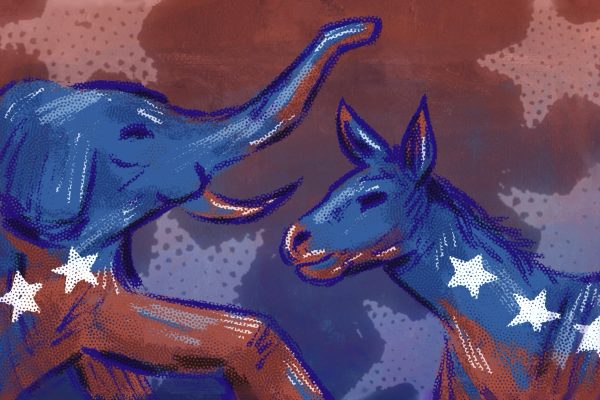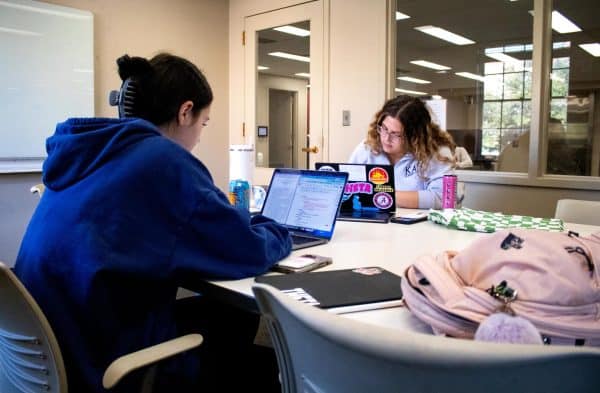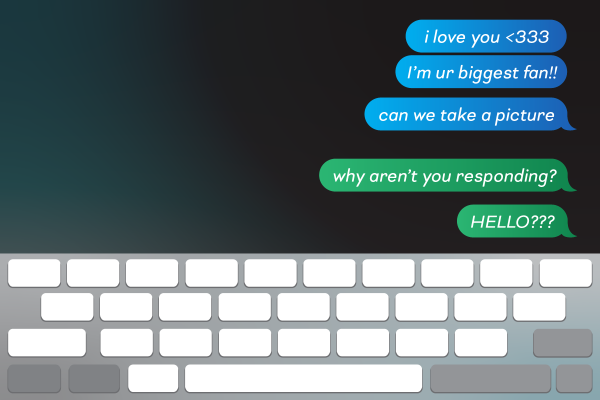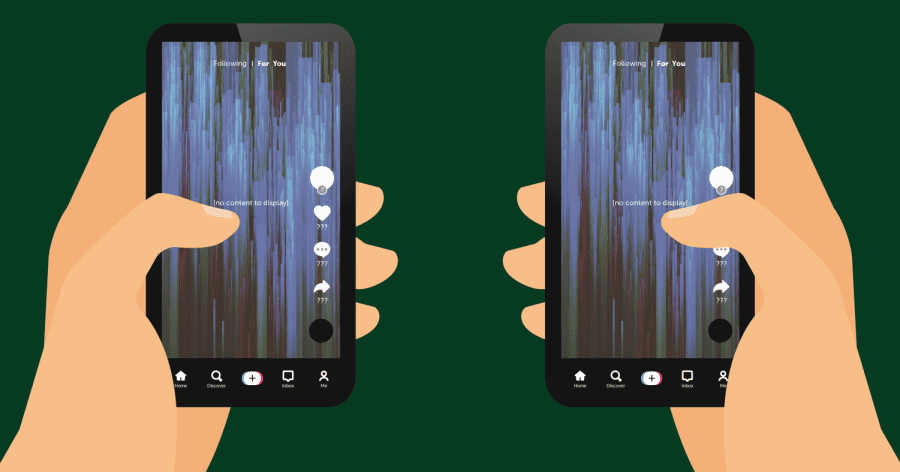Opinion | Why TikTok-ers are willing to risk it all
TikTok has been through a lot, including near-bans and launching some of its users to stardom. Despite data concerns, many users just won’t give the app up.
Take a walk across campus at night and you’ll find dozens of rooms lit up with purple, blue, green and sometimes even flashing LED lights. Congratulations. You have found the TikTokers.
They dance shamelessly in parking lots, put a finger down for every stupid thing they’ve ever done and scream “this is a TikTok song!” every five minutes when they listen to the car radio. They may have downloaded the app as a joke, but now they’re as obsessed as the rest of us.
The app’s popularity is obvious, but it became nationally controversial when President Trump signed an executive order banning TikTok from the App Store last month. From the perspective of the White House, China’s authoritarian regime and its ability to use information to “blackmail or launch disinformation campaigns” could be a threat to national security.
Thankfully, a deal is being made to keep TikTok in the U.S. According to a CNBC article, a U.S. tech company called Oracle is linking up with Walmart to head the brand new TikTok Global and handle all the U.S. user data, thus preventing China from stealing all of our personal information. The good news is that you won’t have to illegally keep TikTok on your phone or risk downloading anything sketchy to keep up with all your favorite trends. But as freshman engineering major and TikTok user Emily Iannuzzi points out, this is nothing new.
“Facebook and Google already sell our info to everyone,” Ianuzzi said, “I don’t see why a ban is necessary.”
Basically, it seems like stealing American information is okay as long as American companies are doing the stealing. But Melody McNees, a freshman majoring in management, suspects that there are other factors at play.
“Politics are very prominent on the app right now,” she said. “It has been a way to get young voters to make their political decisions.”
Clearly, TikTok is not only a way to make people laugh, but to spread awareness, express opinions and share ideas. For many users, it’s more effective than Instagram, Snapchat and other forms of social media. Therefore, a TikTok ban could be seen as an infringement on their freedom of speech. Since young voters historically lean towards the Democratic party, TikTok could definitely be a source of concern for President Trump.
The entire situation introduces the conflict of national security vs. freedom of speech. Many users dismiss the concerns about their information being stolen and continue to use the app anyway.
“Everyone who is on it did have to agree to a terms of usage agreement when signing up,” freshman and chemistry major Valerie Knight said.
So is Trump overstepping and is this ban even constitutional? Or is the government just trying to look out for us in their own twisted way? Clearly, a simple app can have a lot of power in today’s world. As the U.S. continues to adapt to the new social media sphere, only time will tell how far they are willing to go in order to “protect us.”
Either way, TikTok is here to stay. For many, the app is a source of calm and positivity after a long day of classes or before going to bed every night.
“It gives me an outlet to relieve stress and enjoy fun videos,” McNees said.
Fellow freshman Madisynn Isbell, who is majoring in kinesiology, predicts that the app will continue to increase in popularity despite the ban “then eventually die down like Vine did.” Even if the app’s usage declines over time, there is no doubt that it made its stamp on American culture, ensuring that our generation will always be remembered for dances like the Renegade and products like LED lights, for better or worse.











